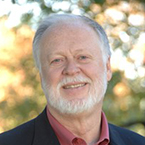
Scientific Areas of Expertise: Cancer Biomarkers; Cancer Risk Assessment; Epidemiology
For essential contributions to cancer risk assessment and epidemiology, and identification of cancer biomarkers; for defining the environmental and molecular drivers of carcinogenesis, including linking aflatoxin B1 exposure to increased hepatocellular carcinoma risk in individuals who express particular p53 tumor suppressor mutations; and for demonstrating that childhood secondhand smoke exposure directly correlates with an increased risk of lung cancer in adult nonsmokers, specifically those harboring MBL2 mutations.
An internationally esteemed authority, Dr. Harris revered for his studies involving cancer risk assessment and epidemiology, cancer biomarker identification, and for defining the environmental and molecular drivers of carcinogenesis. His seminal findings linked aflatoxin B1 exposure to increased hepatocellular carcinoma risk in individuals who express certain p53 tumor suppressor mutations. Additionally, he demonstrated that childhood second-hand smoke exposure directly correlates with an increased risk of lung cancer in adult non-smokers, specifically those harboring MBL2 mutations. With a research career exceeding half a century, Dr. Harris’ work appears in more than 700 journal articles and has been awarded 30 patents, contributing fundamental breakthroughs in our understanding of environmental mutagenesis and carcinogenesis.
Through this research and extensive service to the national and international scientific community, Dr. Harris has endowed us with exceptional scientific contributions for the improvement of human health. Currently, his team aims to improve cancer precision medicine by better understanding the connections between cancer development and inflammation, microRNAs, the metabolome, and the microbiome. To this end, Dr. Harris’ research has been centered on exploring the molecular mechanisms of microRNAs and cytokines associated with human cancer diagnosis, prognosis, and therapeutic outcomes. His ongoing studies in lung, colon, liver and esophageal cancer pursue the novel concept of gene-environment interactions and are shifting the paradigm in the molecular epidemiology of human cancer. Most notably, Dr. Harris is spearheading a biomarker program that integrates molecular, clinical, and environmental data for patients across the globe to identify lung, esophageal, liver and colon cancer early-stage cancer biomarkers. This monumental undertaking of constructing a molecular taxonomy with signatures of cancer risk, diagnosis, and prognosis aims to inform individualized therapeutic regimens and significantly improve cancer diagnosis and treatment worldwide.
Selected Awards and Honors
2016 Distinguished Medical Alumnus Award, Kansas University School of Medicine, Kansas City, Kansas
2014 AACR-American Cancer Society Award for Research Excellence in Cancer Epidemiology and Prevention, American Association for Cancer Research, Philadelphia, Pennsylvania
2014 Nelson Fausto Award, International Liver Cancer Association, Brussels, Belgium
2013 Outstanding Mentor Award, National Cancer Institute, National Institutes of Health, Bethesda, Maryland
2009 MERIT Award, National Cancer Institute, National Institutes of Health Bethesda, Maryland
2009 AACR-Princess Takamatsu Lectureship, American Association for Cancer Research, Philadelphia, Pennsylvania
2003 Elected Fellow, American Association for the Advancement of Science, Washington, DC
2002 Award of Merit, Princess Takamatsu Cancer Research Fund, Tokyo, Japan
2001 Elected Honorary Member, Japanese Cancer Association, Tokyo, Japan
1999 Public Health Service Distinguished Service Medal, United States Public Health Service, Washington, DC
1999 Charles Heidelberger Award, International Society on Gastroenterological Carcinogenesis, Tokyo, Japan
1996 Bob Champion Award and Lectureship, British Oncological Association, London, United Kingdom
1995 Walter Hubert Award and lecturer, British Association for Cancer Research, Nottingham, United Kingdom
1992 Elected Fellow, American Society of Clinical Investigation, Ann Harbor, Michigan